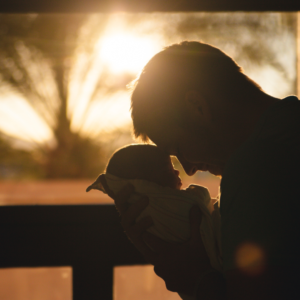Brief summary of protection need
Protection is the neuropsychological driver that assists us in producing behaviours that, and working long-term to, meet our physical needs. It encompasses further our need to protect the human species as a community by successfully raising children. Our fundamental wiring makes us act in many ways that protect the safety and wellbeing of ourselves, our belongings, and our community. This article is about how we balance and regulate our need and behaviours in this area. You can read a detailed explanation of this need by reading my Basics article “Protection need“.
Regulating protection
When we understand that our most core and fundamental need is our need to keep all aspects of our being balanced or “regulated”, we not only need to understand what is involved in our behaviours being driven by each need, but we need to understand what it might look like when this need is not met, why it might not be met, or is threatened, and how we might support someone who is dysregulated in this area.
When we are talking about balancing one of our psychological needs, we mean that it is essential that we are ensuring our need for protection is met enough, but understanding that too much protection in any area will deregulate other psychological needs, or our emotional, sensory, cognitive or physical needs being less well regulated. For instance:
- Being overly protected by others can lead to us having a lack of autonomy
- Having to completely protect ourselves can lead us to shut ourselves away and therefore we can lack connection
- Staying in completely protected spaces for too long leads to a lack of novelty
- Taking on too much care of others leads to feeling a lack of recognition for the contribution you are making and can lead to physical, sensory, emotional and cognitive dysregulation.
Responses to unmet protection
As safety is part of this need, protection has an even stronger need more often to our brains’ ability to perceive serious threat (neuroception). When our need for physical safety is unmet, this will almost always create a direct threat response (the Fs of threat) rather than “just” and emotional response. Anger and fear are more likely to arise but also more automatic reactions that are less controllable. Unmet needs around care with this category are more likely to incite emotional responses such as sadness and guilt, as well as many nuanced emotions derived from these core ones, such as loneliness, hurt, and shame,
Whilst the above is true for every human being, those people with an exaggerated protection need, which may come from trauma, attachment difficulties, or neurodivergence, will be more likely to react more strongly as soon as their protection needs are threatened or unmet even in small ways.
10 most common triggers in protection need
- They didn’t take proper care of me
- I don’t feel safe
- You are putting me in danger
- This place isn’t safe
- I cannot protect myself properly here
- I cannot meet my basic needs here (lack of resources)
- I have nothing to take care of
- I feel incapable of taking care of you
- You are making someone I care about unsafe / hurting them
- I have no-one on my side / supporting me.
Feeling "unsafe"
it is important to understand that this need is more than a need to “feel safe”, though we do need to. There are many situations that constitute an unmet need that create fear, or feeling unsafe, that are inherently not about the protection need. Examples of this are:
- Someone’s freedom of choice or of belief is removed. They feel scared, helpless and unsafe (and probably angry too), but the unmet need is not protection or even safety (as identified in Maslow’s theory), it is autonomy – the need for personal freedom.
- You enter an environment where you don’t know anyone and don’t understand how you are supposed to behave. You will feel unsafe and fearful or anxious for sure, but your unmet need is not for protection (though having someone take care of you might help you get through it). The need here is connection – to feel that you belong and to have context and meaning in your interactions.
Protection associated words
- Care
- Look after
- Safety
- Rescue
- Secure / ity
- Stand up for
- Hide
- Run
- Shelter
- Responsibility
- Home
- Capability
- Trust
- Vulnerability
- Loyalty
- Interdependence
- Justice
- Support
- Solidarity
- Shield
- Sustainability
- Healing
- Advocacy
- Reliance
- Honesty
- Transparency
- Gentle
- Defence
Words related to protection dysregulation
- Hide
- Run
- Fear
- Neglected
- Threatened
- Flee
- Provoked
- Betrayed
- Fawn
- Abused
- Aggression





